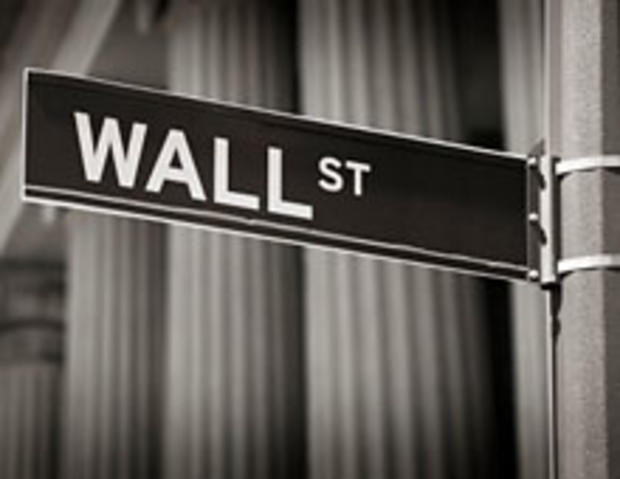Why Are No Wall Street Executives in Jail?
[Updated on April 14]
In a front-page story in this morning's New York Times, Gretchen Morgenson asks the question that has occurred to almost everyone with a pulse since 2008: Why, two years after a horrific financial crisis, have no financial executives gone to jail? Morgenson contrasts the handling of this disaster with the wave of prosecutions that followed the savings and loan fiasco in the 1990s and sent more than 800 bank officials to jail.
In pursuing the inquiry, Morgenson follows a long line of journalists, some of whom have reached damning conclusions. Matt Taibbi of Rolling Stone, for one, blames the limp law enforcement on cozy relationships in the financial industry between regulators and the regulated. William Greider in The Nation, attributes the absence of perp walks to prosecutors' reluctance at this point in the economic recovery to bring down weakened financial firms with a civil death sentence, like that administered to Arthur Andersen over the Enron scandal. Guilty bankers get a get-out-of-jail card because, as Alain Sherter of BNET puts it, they're "too big to prosecute."
There is one other simple explanation, however. The bankers are probably not criminals.
Explanations of the financial crisis fall into two camps, represented by the divided opinion of the Financial Crisis Inquiry Committee. One is the "Black Swans," who regard the crisis as an unforeseeable, low- probability event, in which many strands came together in a kind of perfect financial storm. Political conservatives tend to like this interpretation.
The other camp is represented the FCIC's majority opinion and blames what economists call the "agency problem": The people we entrusted to run our banks and manage our economy had incentives to take risks that exploded in their, and our, faces. Responsible regulators should have prevented the crisis, but they had long since been bought off. The rating agencies should never have bought into the notion that toxic mortgages could be made safe by securitization. Executives should have realized the risks they were taking with their shareholders' money. Economists should have seen it coming. None did.
Either interpretation of the crisis leads to an equally unsatisfying conclusion, however: Nothing more sinister was at work than sloppiness, greed, and ideological blindness. In a New York Times Magazine cover story "How Did Economists Get it So Wrong," Paul Krugman concludes economists' real failure in the crisis was a kind of mass delusion that held that markets are always right and regulations are always wrong:
But while sabbaticals at the Hoover Institution and job opportunities on Wall Street are nothing to sneeze at, the central cause of the profession's failure was the desire for an all-encompassing, intellectually elegant approach that also gave economists a chance to show off their mathematical prowess.Prosecutors seem to have reached the same thought about the Wall Street honchos, concluding that they can't pin a crime even on such seemingly culpable figures as Joe Cassano (head of the AIG's derivatives business), Angelo Mozilo (whose Countrywide Lending mortgages were the embodiment of toxic loans) and Richard Fuld (the CEO of Lehman Brothers). Yes, there was plenty of intentional fraud in this crisis, notes Joe Nocera in his New York Times column, but it happened streetside, between mortgage brokers and often naïve borrowers, not in the executive suite. The evidence, according to testimony in the Financial Crisis Inquiry Commission records, suggests that the white collar offenders Ferguson wants jailed were greedy, arrogant, inattentive, and oblivious. But not criminal.
Philip Tetlock, a University of California - Berkeley professor of psychology agrees that this interpretation accords with his decades of research into expert misjudgment. Few in positions of power understood what they had created, and their fat bonuses depended on their not looking too closely at the complex models behind mortgage derivatives. "Mathematics has a certain mystique. People get intimidated by it, and no one challenged the models," he explained to me in an interview. For every John Paulson-the hedge fund manager who made billions betting against mortgages-there was a Howie Hubler, the Morgan Stanley trader whose missteps on complex securities reportedly cost the firm $9 billion.
Wall Street firms' shareholders should have fired the executives who were asleep to the risks their firms were taking and disgraced them, not rewarded them. They should start now to rein the grotesque pay packages that led the shareholders' stewards to take reckless risks. And yes, if executives committed "massive fraud," they should be tried. But despite the fury a nation justfiably feels towards financial executives, criminal fraud is not what seems to have happened-at least not clearly enough to convince a jury. It's hard not to feel outrage when you see the same people who nearly wrecked the economy pulling down huge bonuses. If only that was against the law.
More on MoneyWatch:
